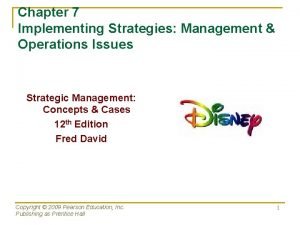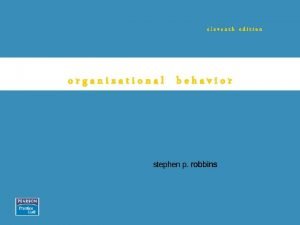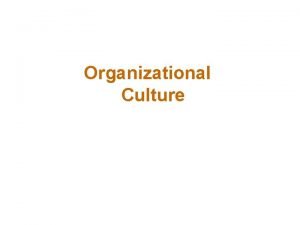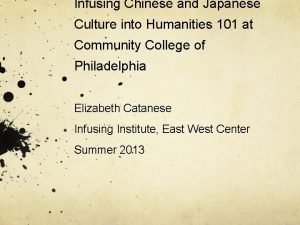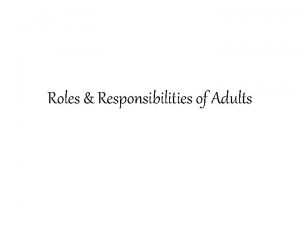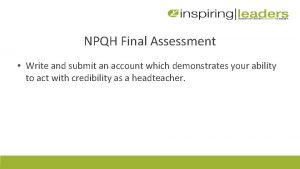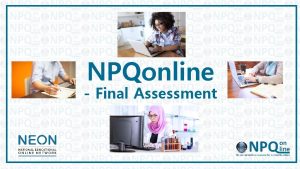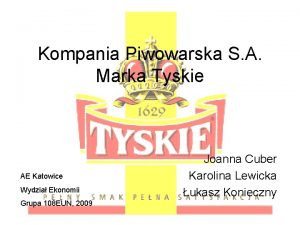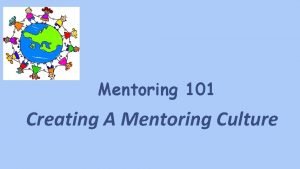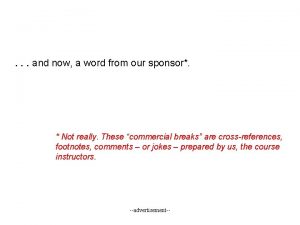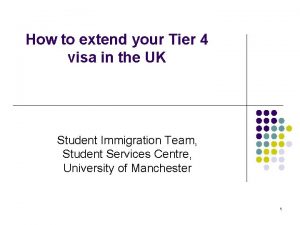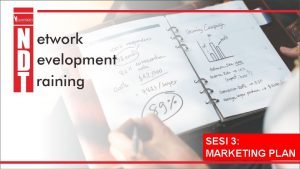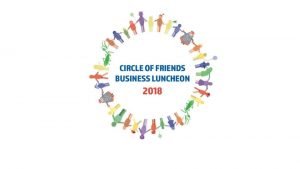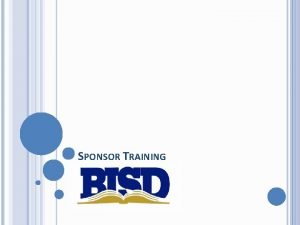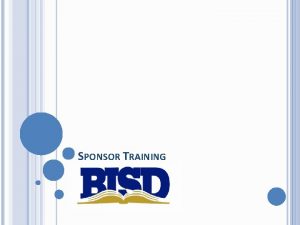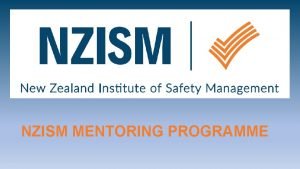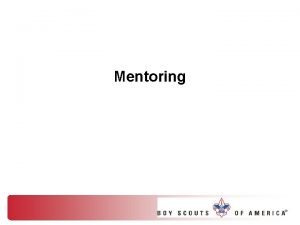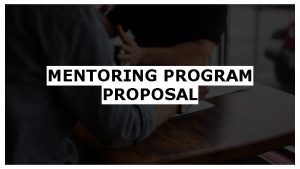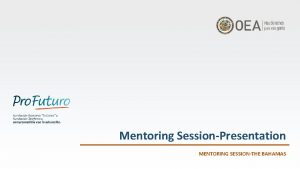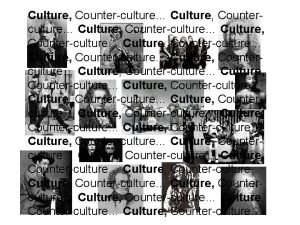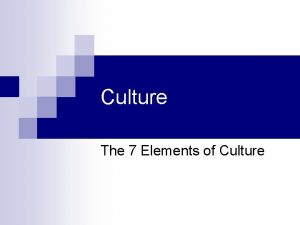Mentoring 101 Creating A Mentoring Culture Sponsor VS

















- Slides: 17

Mentoring 101 Creating A Mentoring Culture

Sponsor VS Mentor • Sponsor’s Act: Sponsors… • connect protégé’s to career opportunities. • advocate for protégé’s advancement. • support risk-taking • publicly endorse protégé’s. • expect high performance in return. • Mentors Advise Mentors… • • • reduce isolation and stress. navigate unwritten rules. build confidence. provide tips and strategies. promote inclusion. **As defined by the National Center for Women.

Skills and Tools Needed for Effective Mentoring • Four Key Mentoring Skills • Key Qualities of an Effective Mentor • Intentional Pairing of Mentor with Mentee • Expectations and Accountability

Four Keys Mentoring Skills

#1 Listen Actively • Be approachable • Be present • Don’t assume

#2 Building Trust • Maintain confidentiality. • Show interest and support. • Be honest. • Be authentic.

#3 Determine Goals and Educate • Educate your mentee about your club. • Encourage her to be active. • Help your mentee gain an understanding of her responsibilities. • Educate her on the use of the club website. • Keep your mentee informed.

#4 Encouraging and Inspiring • Be welcoming. • Be sincere. • Share your Soroptimist experiences. • Be encouraging. • Celebrate success!

Key Qualities of an Effective Mentor • Approachability, availability and the ability to listen. • Ability and willingness to communicate what you know. • Anticipate possible questions, concerns or misconceptions. • Be honest, sincere and authentic. • Show compassion and genuineness. • Make it enjoyable.

Intentional Pairing of Mentor to Mentee • Mentors need to open to being a mentor. • Explain to new member that she will have a mentor. • Honor new member request for a mentor. • Ask new member what she is looking for in a mentor. • Matching can be by personal interests, common careers, mixed generations or same generations, etc. • Be aware that not all pairings are compatible. Create an open environment where a mentee or mentor can safely without judgement request a new pairing. • Mentor should have at least 3 years of active club experience. • Should be mentee driven and mentor guided.

Expectations and Accountability • TIME • Be mindful. • Be educated. • Be accountable. • Be their protector.

The investment of time, commitment and self in the mentee/mentor relationship is the strongest predictor of success.

Personal Experience • Quietly reflect on a personal experience where you were either mentored or have been in the position of being a mentor. • Share your experience with the person next to you or in a small group. • Was your experience positive or negative? • Was it a good pairing? • What key mentoring skills were evident or missing?

Communication thru the Generations Mature Generation: born 1927 -1945 • Communicate with face to face, direct mail, or phone. Increasingly becoming more text savvy – email, and text. Baby Boomer: born 1945 -1964 • Communicate by, face to face, direct mail, email and text. Generation X born 1965 -1981 • Communicate by text, email, social media or phone. Millennials: born 1982 -2000 • Communicate by text, social media, email or phone.

Strategic Planning Exercise Creating a Mentoring Culture

Putting Into Practice what we have heard about mentoring. Mentors, Mentees (Club members – LYD program awardees) Dream Big – Where do you see your club in 3 years? Prioritize – Ideas What would be the step to get there? What would be possible barriers? How would you address barriers? What tools would you need?

What’s Next? How can GWR and SIA help?
 Creating a strategy supportive culture
Creating a strategy supportive culture Do organization have uniform culture
Do organization have uniform culture Creating the culture of british north america
Creating the culture of british north america Institutionalization organizational culture
Institutionalization organizational culture Japanese culture 101
Japanese culture 101 Sponsor by
Sponsor by Adult sponsor
Adult sponsor Npqh task 1 example 2020
Npqh task 1 example 2020 Npqonline final assessment
Npqonline final assessment Pedro menendez de aviles sponsor
Pedro menendez de aviles sponsor Sponsor
Sponsor Jacques cartier personal background
Jacques cartier personal background Tyskie sponsor reprezentacji
Tyskie sponsor reprezentacji Pedro menendez wellness center
Pedro menendez wellness center Mentor vs sponsor
Mentor vs sponsor And now a word from our sponsor
And now a word from our sponsor Sponsor letter for visa uk
Sponsor letter for visa uk Bonus sponsor tiens
Bonus sponsor tiens
